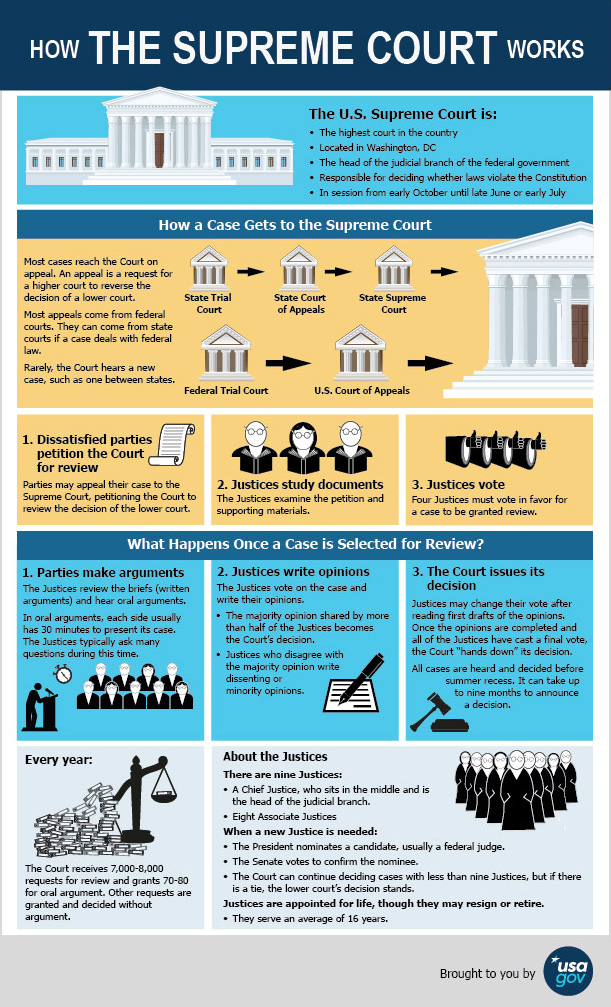Infographic: 3 Branches of the U.S. Government
Learn the executive, legislative, and judicial branches of government and see a lesson plan for teachers.

-
Constitution
The Founding Fathers, the framers of the Constitution, wanted to form a government that did not allow one person to have too much control. With this in mind, they wrote the Constitution to provide for a separation of powers, or three separate branches of government.
Each branch has its own responsibilities and at the same time, the three branches work together to make the country run smoothly and to assure that the rights of citizens are not ignored or disallowed. This is done through checks and balances. A branch may use its powers to check the powers of the other two in order to maintain a balance of power among the three branches of government.
Legislative - Makes Laws
Congress is composed of two parts: the Senate and the House of Representatives.
Senate
The Senate has 100 elected senators total; 2 senators per state. Each senator serves a 6-year term.
House of Representatives
The House has 435 voting representatives; the number of representatives from each state is based on the state's population. Each representative serves a 2-year term and may be re-elected.
Executive - Carries Out Laws
The executive branch is composed of the President, Vice President, and Cabinet members.
President
The President is the head of state, head of the U.S. government and the commander-in-chief of the U.S. military.
Vice President
The Vice President not only supports the President but also acts as the presiding officer of the Senate.
Cabinet
The Cabinet members are nominated by the President and must be approved by the Senate (with at least 51 votes). They serve as the President's advisors and heads of various departments and agencies.
Judicial - Evaluates Laws
The judicial branch of government is made up of the court system.
Supreme Court
The Supreme Court is the highest court in the country. The 9 justices are nominated by the President and must be approved by the Senate (with at least 51 votes).
Other Federal Courts
There are lower Federal courts but they were not created by the Constitution. Congress established them around the country to handle federal business as the country grew, using power granted by the Constitution.
You can download or order a kids version of our 3 Branches poster.

